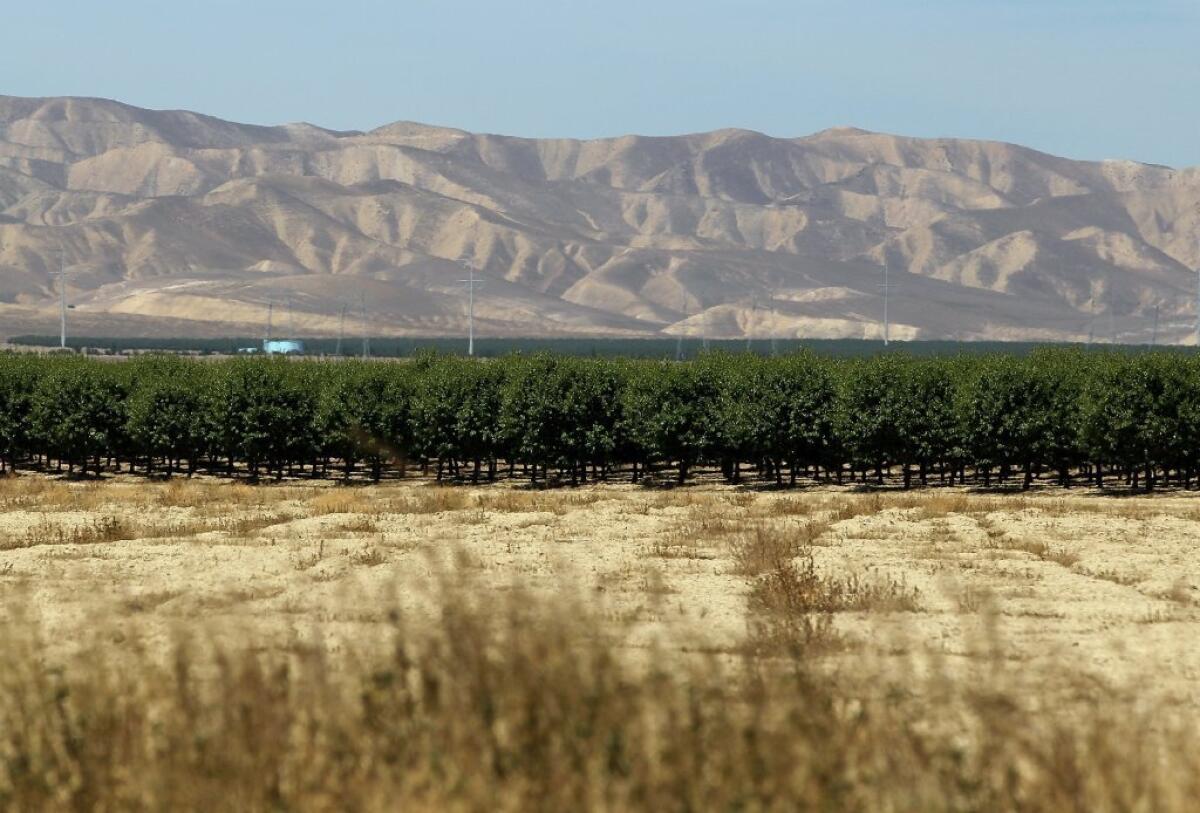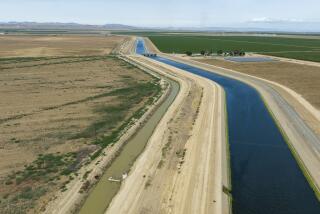Editorial: California’s drought and D.C.’s dry solutions

- Share via
Masquerading as a response to California’s drought, a bill to waive environmental protections and divert more water to Central Valley agriculture passed the Republican-controlled House in February and is now going to conference to be reconciled with a competing bill by Senator Dianne Feinstein (D-Calif.) that the Senate adopted last month.
Californians overwhelmingly reject loosening environmental regulations to increase water deliveries to farms and cities, as demonstrated by the results of a USC Dornsife/Los Angeles Times poll released Friday. So you might think that Feinstein’s alternative bill would propose a more palatable way to deal with the state’s water crisis. But there’s a catch — three of them, actually.
The first is that most of what the Senate bill offers — flexibility to reduce river flows to the Sacramento-San Joaquin River Delta during emergencies in order to direct more water to Central Valley farmers — already exists. Water managers have authorized the maximum amount of river diversions consistent with laws in place to protect crippled salmon fisheries and prevent the collapse of not just the delta but the state’s entire water delivery infrastructure. So Feinstein’s bill either undermines those protections (the senator insists it does not) or merely engrafts into law what has already been accomplished administratively.
That takes us to the second catch. Any progress California hopes to make in attaining sustainable solutions to its long-term water crisis requires a great deal of trust on the part of all factions that science and expertise, and not politics, will govern day-to-day decisions about how much water is needed to protect a salmon run, for example, and how much can be diverted to farms. Changing rules that by all appearances are working sends a signal that Congress rather than water experts may at any moment take charge of the state’s competing water needs. Such a precedent bodes ill for even more complicated programs, such as the twin tunnels proposed to divert water around the delta, because environmentalists and Northern California farmers won’t sign on if they have no faith that science will guide decisions about when and how much to pump.
The third catch is that the Senate bill is a poor starting point for conference discussions with House Republicans, whose bill is geared more toward permanently weakening the Endangered Species Act than any drought relief or sustainable water solution. A compromise between the two bills would be bad for California.
The state does need federal water legislation — laws that incentivize agricultural and urban efficiency and assist in groundwater cleanup and recharging. Those are the areas in which Congress should be focusing its attention.
More to Read
A cure for the common opinion
Get thought-provoking perspectives with our weekly newsletter.
You may occasionally receive promotional content from the Los Angeles Times.






